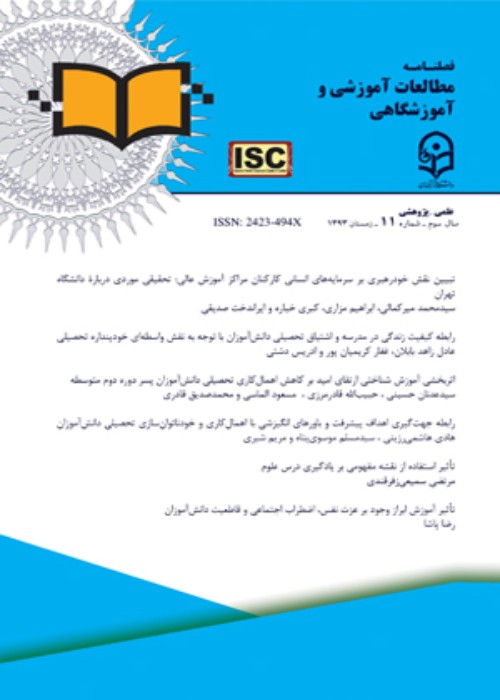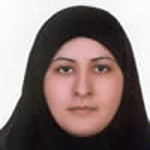Designing an Intercultural Curriculum Framework for Teacher- Students at Farhangian University
Author(s):
Article Type:
Research/Original Article (دارای رتبه معتبر)
Abstract:
The purpose of this study is to Designing an Intercultural Curriculum Framework for Teacher- Students at Farhangian University. The present study was based on a qualitative approach and phenomenological method with the presence of 18 participants among curriculum and sociology specialists using purposive sampling method and semi-structured interviews. The analyzes were based on open, axial and selective coding. In-depth analysis of the interviews resulted in identifying and categorizing the features of intercultural education curriculum. It can be argued that Intercultural training curriculum framework consists of 4 elements of purpose, content, teaching-learning methods and methods of evaluation. Themes oversee the objectives of the Intercultural education curriculum in three basic dimensions (cognitive, emotional / attitudinal, and skill). Promoting respect for values and differences in the educational content section; Emphasis on the preservation and transmission of cultural heritage; Emphasis on social interaction; The disadvantage of emphasizing the avoidance of racism; Adaptation to the local historical identity of different ethnic groups; Paying attention to the role of Iranian ethnic groups in maintaining national independence; Attention to national and ethnic cohesion; Attention to cultural diversity; Attention to teaching indigenous and local languages; Attention to cultivating cultural self-awareness; Promoting justice and equality; Attention to different heavenly religions; Accept differences. In the section of teaching-learning methods, role-playing; Demonstration method; Project method; Collaborative teaching method; Scientific teaching method; Reliance method; Brain Enhancement Method; Problem solving method; The method of the courts; Group discussion method. The element of evaluation, as the last element in the intercultural curriculum from the perspective of the study groups in the form of: functional test; Observational evaluation; Oral evaluation; Paper pencil test; Skill-based tasks; Self-assessment; Peer assessment were identified.
Keywords:
Language:
Persian
Published:
Journal of Educational and Scholastic Studies, Volume:12 Issue: 35, 2023
Pages:
195 to 218
magiran.com/p2658477
دانلود و مطالعه متن این مقاله با یکی از روشهای زیر امکان پذیر است:
اشتراک شخصی
با عضویت و پرداخت آنلاین حق اشتراک یکساله به مبلغ 1,390,000ريال میتوانید 70 عنوان مطلب دانلود کنید!
اشتراک سازمانی
به کتابخانه دانشگاه یا محل کار خود پیشنهاد کنید تا اشتراک سازمانی این پایگاه را برای دسترسی نامحدود همه کاربران به متن مطالب تهیه نمایند!
توجه!
- حق عضویت دریافتی صرف حمایت از نشریات عضو و نگهداری، تکمیل و توسعه مگیران میشود.
- پرداخت حق اشتراک و دانلود مقالات اجازه بازنشر آن در سایر رسانههای چاپی و دیجیتال را به کاربر نمیدهد.
In order to view content subscription is required
Personal subscription
Subscribe magiran.com for 70 € euros via PayPal and download 70 articles during a year.
Organization subscription
Please contact us to subscribe your university or library for unlimited access!





